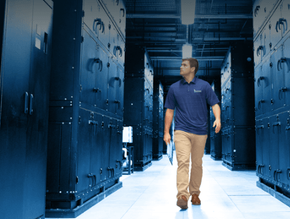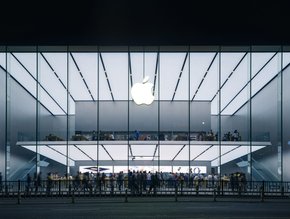The environmental challenge of SF6 gas in switchgear

In a world driven by high energy demand, reliant on the electrical infrastructure, the proper functioning of switchgear is essential for maintaining uninterrupted power networks. However, the utilisation of sulphur hexafluoride (SF6) gas in switchgear presents an environmental challenge.
Whilst SF6 is widely recognised for its effectiveness in switchgear applications, it carries a drawback because of its greenhouse gas properties. With a global warming potential (GWP) tens of thousands of times worse than carbon dioxide, and a consistent rise in annual emissions - with SF6 increasing by 24% between 2008 and 2018 - SF6 poses a tangible threat to climate stability and global warming. Moreover, accurately tracking SF6 release into the atmosphere remains challenging, particularly in developing countries, suggesting that the actual levels could be underestimated.
The importance of addressing this issue has become increasingly apparent, requiring the data centre industry and other electricity-intensive sectors to take proactive measures. By spearheading innovative switchgear solutions that eliminate the usage of harmful SF6 gas, these sectors can showcase their unwavering commitment to environmental responsibility and sustainability.
Unmasking SF6 gas: Exploring its environmental footprint and implications
Switchgear is an essential component of power systems, particularly in data centres and telcos, which have high power requirements. SF6 gas is often used in high voltage switchgear due to its unique properties that make it ideal for insulation and arc-quenching purposes.
However, the GWP of SF6 gas far exceeds that of carbon dioxide, contributing to global warming and climate change. Furthermore, when exposed to high temperatures, SF6 transforms into a harmful powder, posing risks to human health. Although relevant personnel receive training on proper handling of the gas, containing SF6 is challenging, leading to permissible leakage levels that pose environmental and safety concerns.
Whilst the European Community has already taken significant strides towards the elimination of SF6 gas, it is worth noting that the UK has not yet implemented similar regulations. Nevertheless, forward-thinking industry leaders such as VIRTUS Data Centres are taking proactive measures to drive change. The company is actively advocating for the discontinuation of SF6 switchgear and seeking out innovative and sustainable alternatives. By leading the way in promoting environmentally responsible practices, these industry pioneers are paving the path for a greener and more sustainable future in the UK's electrical infrastructure sector.
Due to its high energy usage, the data centre industry has the influence to create market demand for SF6-free switchgear. By advocating for its use, operators incentivise manufacturers to invest in research and development, leading to the development of more environmentally friendly solutions. By showcasing the demand for sustainable switchgear, operators can encourage the industry to prioritise innovation and the development of environmentally friendly alternatives to SF6.
Exploring alternatives to SPF in switchgear
As the industry seeks to reduce the environmental impact of SF6 gas in switchgear, there is a growing focus on exploring and adopting sustainable alternatives. Several promising solutions have emerged that offer effective insulation and arc-quenching properties, without the harmful environmental effects associated with SF6:
- Air-insulated switchgear (AIS)
Air-insulated switchgear relies on air as the primary insulation medium, eliminating the need for SF6 gas. It offers reliable performance, simplicity and ease of maintenance – and has already been widely adopted in various applications. However, it is important to note that AIS has certain limitations in terms of compactness and its ability to handle high voltages efficiently. - Vacuum-insulated switchgear (VIS)
Vacuum-insulated switchgear utilises a vacuum as the insulation medium instead of SF6 gas. Vacuum offers excellent dielectric properties, making VIS an effective alternative. VIS provides high reliability, low maintenance requirements and a compact design. - Development of new gases
Researchers and manufacturers are actively working on the development of alternative gases with lower global warming potential compared to SF6. These gases aim to provide effective insulation and arc-quenching capabilities while minimising the environmental impact. Some promising alternatives under investigation include nitrogen (N2), carbon dioxide (CO2) and fluoroketones (FKs). - Solid insulation solutions
In addition to exploring gas alternatives, efforts are underway to develop solid insulation solutions for switchgear. Solid insulation materials offer excellent electrical insulation properties and eliminate the need for any greenhouse gases. By using solid insulation, switchgear systems can achieve long-term sustainability benefits and reduce their environmental footprint. - It’s important to note that the adoption of alternative solutions are currently in their infancy. However, as industry demand for SF6-free switchgear grows and technology advances, these alternative solutions are becoming more accessible and viable.
Cost considerations
Currently, the full understanding of the cost implications is still evolving, but market dynamics suggest that driving demand for SF6-free switchgear will lead to improved affordability.
One key factor driving the potential cost reduction is the increasing investment by manufacturers in research and development of alternative switchgear solutions. As more resources are dedicated to finding and optimising SF6-free alternatives, the technologies and production processes can be refined, leading to more efficient and cost-effective solutions. Manufacturers can benefit from economies of scale as they ramp up production, allowing them to achieve lower costs per unit.
As stakeholders - including utilities, industries and governments - express their preference for SF6-free switchgear, the market demand for these alternatives will grow stronger. This increased demand can incentivise manufacturers to invest further in production capacity and innovation, driving competition and pushing prices down even more. As the market matures and more players enter the industry, the cost-benefit equation for SF6-free switchgear becomes more favourable.
It's also important to note that addressing the environmental impact of SF6 gas in switchgear is not limited to data centres alone – there are various technologies heavily reliant on electricity such as semiconductor devices found in computers, smartphones, consoles and batteries for electric vehicles. However, due to its fast growth and usage, the data centre industry has the unique power to drive change by creating market demand for SF6-free switchgear. Indeed, VIRTUS aims to inspire the industry and drive change, setting an example for other sectors and catalysing a ripple effect of sustainable practices.






